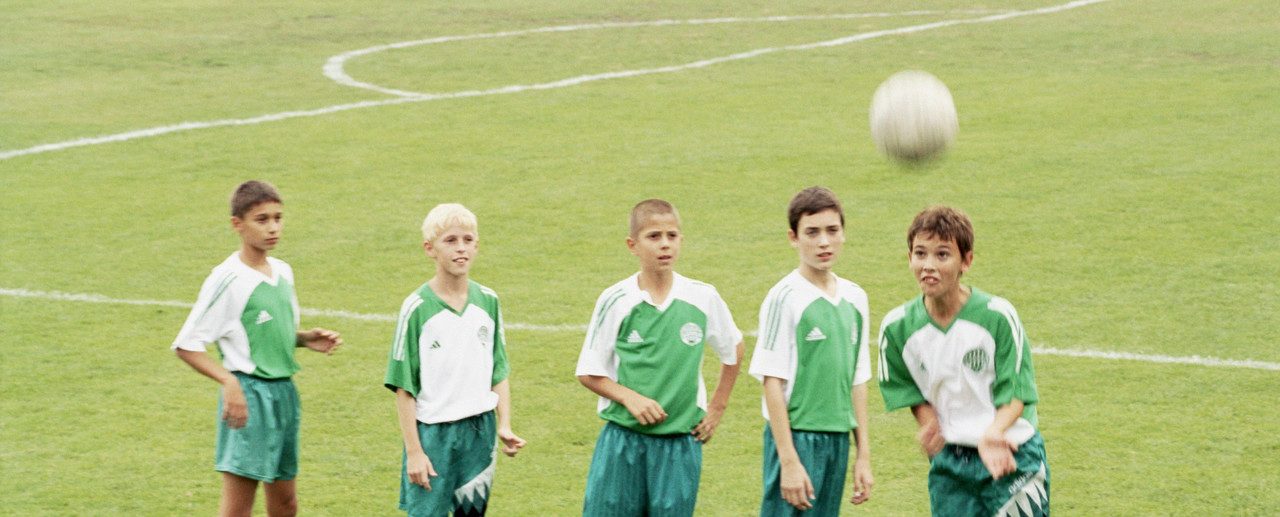February 23, 2018
5 Ways to Raise an Independent Child

For a number of years, “success” has been a buzzword in the world of parenting. Just check out the number of parenting books that have used the word “success” in the title.
I’m noticing a bit of a shift these days. I’ve been asked a number of times to address how we can raise kids to be independent. I like this shift because it think it is a more grounded question. We know we want our kids to be happy, and, yes, find their own successes, but as parents, what we really hope for is that our kids will be able to make their way on their own when they leave us. We want them to be able to manage their lives in college, and find their way in the world. We want them to have the skills that will help them navigate the uncertain future that awaits them.
Entrepreneur Jen Prosek and I got together a few years ago to think through this issue, combining a perspective from the business world with the best and most reliable research on child development. The result was a book – “Raising Can-do Kids: Giving Children the Tools to Thrive in a Fast-Changing World” – that emphasized how to cultivate essential traits that kids will need to be independent creatures, both now and when they leave the nest. Here is a sampling of 5 key traits and our take on them.
YOU MIGHT ALSO LIKE: Getting Your Child to Listen: The Art of Redirection
Kids need to explore
The most fundamental way of achieving independence is to be able to explore the unknown. You may not think of it this way, but babies practice this skill constantly. They explore your face in complex ways that change throughout infancy to figure out language, emotion, and social bonding. They want to move themselves around to manipulate everything in their environment using multiple senses. Toddlers want to be hands-on and free to roam (safely of course) about as they follow their inner muse. These basic threads of exploration should then play out throughout development, via curiosity, passion, and an inner drive to investigate. The thing is, our culture damps down on all these things. Kids don’t have as much free time to do what they want, and all the activities they do tend to be highly structured. Academics has moved to rote drilling under the guise of accelerating learning, but kids get to college and can be flummoxed when asked to think on their own and weave together their own course of study to figure out who they are and what they want to do with their lives. Promoting freedom to explore – physically and mentally – should be a guiding principle in every parent’s playbook.
Kids need to innovate
Innovation in the workplace is a hot topic, and it doesn’t mean achieving some massive, world-changing breakthrough. Rather, many fields prize the ability to solve problems every day and come up with new ways to do something better. It’s how people grow in their work and make their way up the ladder. We don’t have to actually teach little kids how to do this – they are wired to do it. Research has shown convincingly that they function as “little scientists” who know how to generate hypotheses, test them out, and revise their thinking to solve problems. Toddlers have all those 21st century abilities to engage in critical thinking, problem solving, and divergent thinking to come up with and refine innovative approaches to whatever they are trying to do. They just need the space and the opportunity to do so, and that goes for kids of any age. Kids need to learn how to think like a mathematician and not just memorize everything. They should develop their own voices as speakers and writers. They should be fostered to understand that there aren’t that many “right and wrong” answers to complex problems, but rather opportunities to innovate. Sure, teach them the basics of cooking and follow recipes. But also teach them how to improvise off of that, both to come up with innovative takes on the tried and true and to know – like every chef does – how to take what you have in the refrigerator and turn it into a meal.
YOU MIGHT ALSO LIKE: Why Optimism Is Good for Kids (and their Parents)
Kids need to be optimistic
There can be confusion about the power of optimism. The confusion comes from a lack of understanding of what optimism really is – it’s essentially the belief that one can take any bad situation and make it better. Don’t confuse it with magical thinking or unrealistic optimism (like relying on winning the lottery to solve money problems). And contrast it with pessimism, or the tendency to focus on every negative nuance in a situation as a way of not taking action. Optimism simply means knowing you have choices on how to handle bad things and looking for the little things to improve on the bad. Optimists handle surgery better than pessimists simply because they will follow their post-surgery instructions to the letter in the spirit of promoting their most optimal recovery. That’s a powerful thing, and kids should learn the utility of realistic optimism. Having trouble learning to ride a bike? Find the smallest next step to master and work on that – not think that you have to nail it next time you hop on the seat. Having trouble making friends at a new school? Break it down into ways of approaching kids you don’t know and taking time to find little opportunities to develop familiarity. Optimism applies to any life situation – and parents who function as optimists provide a model for their kids that serve them well. And optimism is, eventually, part of the secret sauce that breeds independence because kids will know that they can handle setbacks and take hard knocks and not get beaten down to the point that they just want to give up and come home when things aren’t working out.
Kids need to be industrious
How many times have you heard that youth today are “entitled”? I hear that a lot, but I think it’s more nuanced than that. Kids work very hard today at a lot of things – in fact, college freshmen are more stressed out than ever. But what they don’t work hard at are the dirty jobs of life. They don’t do chores regularly. They don’t know what it’s like to work without getting a gold star and heaps of praise. They don’t know that they will need to do lots of grunt work to climb the ladder, rather than having the ladder being brought to them with an invitation to go straight to the top. It’s not their fault, and parents can inoculate their kids by instilling a sense of industriousness in them. Teach them to be part of the family team and pitch in to work with you to take on household responsibilities. Help them understand that they should look for ways to help out without being told to do so and without expecting a reward. I’ve heard from many who hire and supervise young workers, and there is consensus that they will work hard at the things that they are told to do and the things they think will make them stars – but they look for constant praise and reward and don’t have the initiative to find out how they can uniquely contribute to make things better. Want your kid to be independent? Give them the platform to know how to do that.
Kids have to have people skills
You don’t have to be an extravert to know how to get along with others. Part of being an independent player in the world today is to know how to work with others. Kids have to learn how to collaborate well, how to communicate with others, and how to manage conflicts equitably. Do projects with your kids that are infused with a collaborative spirit and help them find ways to contribute to the tasks at hand. They can learn how to crack an egg and watch you scramble it; when they are ready to scramble their own egg, be there to make the toast in a coordinated fashion. They can sort their dirty clothes and help you load them in the washer; if they can load them in the washer, help them sort and fold them when they are clean and dry. The idea is to get them acclimated to sharing responsibilities with good spirit – here the emphasis is on the people skill of collaborating in terms of being complementary and complimentary. Being a good communicator – someone who can express thoughts and listens to those of others – is essential. Talk a lot to your kids and have uninterrupted conversations that take turns and exchange ideas. And practice sound conflict management strategies that avoid escalation of negative emotions and turf wars in favor of exchanging perspectives and negotiating “win-win” solutions. The independent person of the future will need to know how to function in a world that demands knowing how to work well with a range of people – and not knowing how to “play well in the sandbox” may override whatever talents someone has and undermine career development.
We all want our kids to find their way toward independence. That will take a number of skills that can easily be fostered in the home by you.


